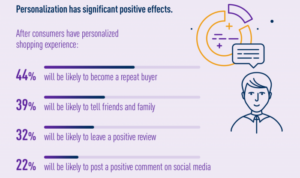Influencer Marketing Tips reign supreme in the digital realm, offering a plethora of strategies to boost your brand’s presence. Dive into this guide for all the insider tips you need to succeed.
From identifying the right influencers to measuring campaign success, this comprehensive overview covers everything you need to know to dominate the influencer marketing game.
Introduction to Influencer Marketing Tips

Influencer marketing is a form of marketing where brands collaborate with individuals who have a strong influence over their audience. These influencers can be social media personalities, bloggers, or celebrities who can help promote products or services to their followers.
In today’s digital landscape, influencer marketing has become increasingly important as consumers are looking for authentic and relatable content. Influencers have the ability to connect with their audience on a personal level, making their recommendations more trustworthy and effective than traditional advertising.
Benefits of Influencer Marketing
- Increased brand awareness: Working with influencers can help businesses reach a larger audience and increase brand visibility.
- Improved credibility and trust: Consumers are more likely to trust recommendations from influencers they follow, leading to higher conversion rates.
- Targeted reach: Influencers often have a niche audience that aligns with specific business goals, allowing for more targeted marketing efforts.
- Cost-effective: Compared to traditional advertising, influencer marketing can be more affordable and offer a higher return on investment.
Identifying the Right Influencers
Finding the perfect influencers for your brand or niche is crucial for the success of your influencer marketing campaign. Here’s how you can identify the right influencers:
Relevance to Your Brand or Niche
When looking for influencers, make sure they align with your brand values, target audience, and niche. Choose influencers whose content resonates with your brand’s image and messaging.
- Look for influencers who create content related to your industry or product.
- Check if their audience matches your target demographic.
- Ensure their values and tone align with your brand’s identity.
Importance of an Engaged Audience, Influencer Marketing Tips
It’s not just about the number of followers an influencer has; engagement is key. Influencers with a highly engaged audience are more likely to drive meaningful results for your campaign.
- Consider influencers with high engagement rates, likes, comments, and shares.
- Audience interaction and genuine interest in the influencer’s content are indicators of engagement.
- Quality of engagement is more valuable than quantity of followers.
Using Tools and Platforms
There are various tools and platforms available to help you find the right influencers for your campaign. Utilize these resources to streamline the selection process and identify influencers that best fit your brand.
- Platforms like Influencer Marketing Hub, Upfluence, and AspireIQ offer influencer search and analytics.
- Use social media listening tools to track mentions and engagement with potential influencers.
- Collaborate with influencer agencies to access a network of vetted influencers.
Building Relationships with Influencers
Building strong relationships with influencers is crucial for the success of your influencer marketing campaigns. By fostering genuine connections, you can create authentic content that resonates with your target audience. Here are some strategies to help you build and maintain relationships with influencers:
Benefits of Long-Term Partnerships
Long-term partnerships with influencers offer numerous benefits, including:
- Increased trust and credibility: Consistent collaboration with the same influencers helps build trust with your audience.
- Deeper understanding: Long-term partnerships allow influencers to better understand your brand, resulting in more authentic content.
- Cost-effective: Working with influencers on a long-term basis can be more cost-effective than one-off collaborations.
- Brand advocacy: Influencers who have a long-term relationship with your brand are more likely to become advocates for your products or services.
Effective Communication and Collaboration
Effective communication and collaboration are essential for successful influencer partnerships. Here are some tips to improve your interactions with influencers:
- Set clear expectations: Clearly communicate your campaign goals, deliverables, and timeline to ensure alignment with the influencer.
- Provide creative freedom: Allow influencers to express their creativity and authenticity in the content they create for your brand.
- Offer timely feedback: Provide constructive feedback to help influencers improve their content and better align with your brand’s messaging.
- Stay engaged: Regularly check in with influencers to maintain open lines of communication and address any concerns or questions they may have.
Creating Engaging Content with Influencers: Influencer Marketing Tips
Collaborating with influencers to create authentic content is key in influencer marketing. By working closely with influencers, brands can leverage their creativity and unique voice to produce content that resonates with their target audience.
Aligning Content with Influencer’s Style and Brand Message
- It is crucial to align the content with both the influencer’s style and the brand’s message to ensure authenticity and credibility.
- By understanding the influencer’s tone, preferences, and interests, brands can tailor the content to fit seamlessly into their feed while staying true to the brand’s values.
Examples of Successful Influencer Marketing Campaigns
- One successful influencer marketing campaign was by Daniel Wellington, who collaborated with various fashion influencers to promote their watches. The key to their success was the influencers’ genuine love for the brand, which translated into authentic content that resonated with their followers.
- In another example, Nike partnered with athletes like Serena Williams and LeBron James to create powerful campaigns that not only showcased their products but also inspired their audience to push their limits and strive for greatness.
Measuring the Success of Influencer Marketing
In order to determine the effectiveness of your influencer marketing campaigns, it is crucial to have clear key performance indicators (KPIs) in place to measure success and track progress. By analyzing the impact of influencer collaborations, you can make informed decisions on how to adjust and optimize your strategies for better results.
Key Performance Indicators for Influencer Marketing
- Engagement Rate: Measure the level of interaction and engagement that your content receives from the audience. This includes likes, comments, shares, and overall interactions.
- Reach and Impressions: Evaluate the number of people who have seen your content through the influencer’s platform, helping you understand the potential exposure of your brand.
- Conversion Rate: Track the percentage of people who took a desired action after seeing the influencer’s content, such as making a purchase or signing up for a newsletter.
- Brand Sentiment: Monitor the overall sentiment and perception of your brand among the audience after the influencer collaborations to gauge the impact on brand perception.
Tracking and Analyzing Influencer Collaborations
Utilize tracking links and unique discount codes provided by influencers to measure the direct impact of their content on website traffic, conversions, and sales.
Regularly analyze the performance data gathered from influencer campaigns to identify trends, patterns, and areas for improvement. Look for correlations between specific influencer content and key metrics to understand what resonates with your target audience.
Adjusting Strategies Based on Performance Data
- Experiment with different types of content, messaging, and collaboration approaches based on the performance insights to optimize future campaigns.
- Communicate transparently with influencers about the performance data and collaborate on adjustments or enhancements to improve outcomes.
- Continuously monitor and evaluate the success of influencer marketing efforts to adapt strategies in real-time and maximize results.
Legal and Ethical Considerations in Influencer Marketing

Influencer marketing is a powerful tool for brands to reach their target audience authentically through the voice of trusted individuals. However, it is crucial to maintain transparency and disclosure in influencer partnerships to ensure credibility and trust among consumers.
Importance of Transparency and Disclosure
- Transparency builds trust: Being open about sponsored content or partnerships helps influencers establish credibility with their audience.
- Legal requirements: The Federal Trade Commission (FTC) requires influencers to clearly disclose paid partnerships to avoid deceiving consumers.
- Consumer protection: Transparent disclosure ensures that consumers are aware of any potential biases or incentives influencing the content they consume.
Legal Guidelines and Regulations
- FTC Guidelines: The FTC mandates that influencers must clearly disclose any material connection to a brand when endorsing products or services.
- Advertising Standards: Influencers must comply with advertising standards set by regulatory bodies to ensure transparency and authenticity in sponsored content.
- Privacy Laws: Influencers should also be mindful of data privacy laws when collecting and using consumer data in marketing campaigns.
Tips for Compliance with FTC Guidelines
- Use clear disclosure labels such as “Ad,” “Sponsored,” or “Paid Partnership” to indicate sponsored content.
- Place disclosure at the beginning of captions or posts to ensure visibility to consumers.
- Avoid ambiguous language or unclear statements that may mislead consumers about the nature of the endorsement.





